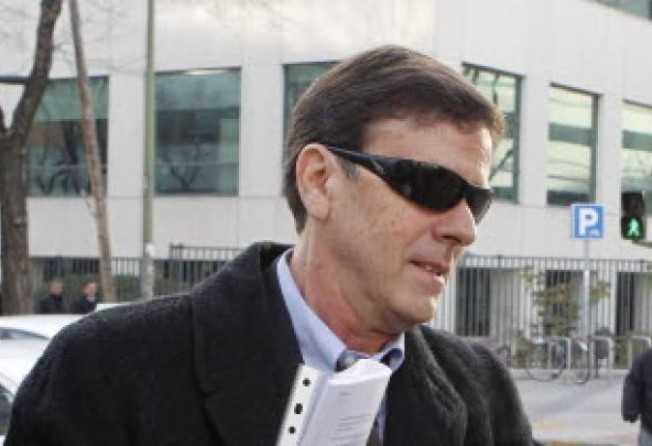Fuentes denies involvement with EPO found in blood bags

Spanish doctor Eufemiano Fuentes, accused of masterminding a doping ring in cycling, told a Madrid court on Wednesday he had nothing to do with traces of the hormone erythropoietin (EPO) found in seized blood bags.
In a second day of testimony, Fuentes, who denies involvement in doping, acknowledged that abnormally high levels of EPO had been detected in eight of the 92 plasma bags found during police raids in 2006.
He and four other defendants, including his sister Yolanda, are appearing before a judge almost seven years after anabolic steroids, transfusion equipment and blood bags were seized as part of a investigation code-named “Operation Puerto”.
“No product was ever added to the blood except legally established preservatives,” Fuentes said.
“Such a small quantity (of EPO) can have no other explanation than that it was the remnants of a previous treatment.”
Prohibited by anti-doping authorities since the early 1990s, artificially injected EPO can help athletic performance by increasing the concentration of red cells and improving the amount of oxygen blood can carry to the body’s muscles.
The closely-watched trial began on Monday and when Fuentes took the stand on Tuesday he told the judge he had clients in sports other than cycling, including soccer, tennis, athletics and boxing.
The proceedings have attracted international scrutiny because anti-doping authorities, who are represented in court, are hopeful it will finally lead to evidence of wrongdoing by athletes in other sports being made available.
The World Anti-Doping Agency’s (WADA) request for access to the blood bags has been repeatedly denied by the Spanish authorities, and the body awaits the judge’s ruling.
As Spain’s current anti-doping legislation was not in force in 2006 when the police raids took place, Fuentes and his fellow accused are being tried for violating public health regulations and the prosecutor has asked for prison sentences of two years.
The blood bags were linked to more than 50 professional cyclists including German Jan Ullrich and Italian Ivan Basso, who were both excluded from the 2006 Tour de France.
Basso, a double Giro d’Italia champion, is due to give evidence next month along with Alberto Contador, the Spaniard stripped of one of his three Tour de France titles after testing positive for a banned substance.
Disgraced American rider Tyler Hamilton is also due to take the stand.
On Tuesday, Fuentes refused to answer questions from lawyers representing organisations including WADA, the Spanish Cycling Federation (RFEC) and the International Cycling Union (UCI).
With Madrid competing with Istanbul and Tokyo for the right to host the 2020 Olympic Games, the Spanish government hopes the trial will help to dispel the impression that the Iberian nation has been soft on doping, particularly in cycling.
Due to end in mid-March, it will put cycling’s problems with illegal drug use back in the spotlight after American cyclist Lance Armstrong this month admitted doping on each of his seven Tour de France victories.